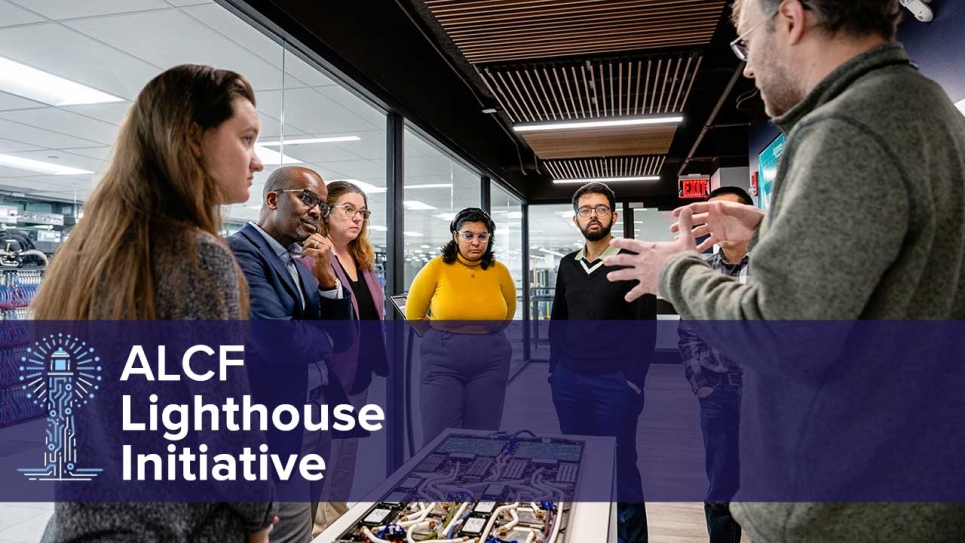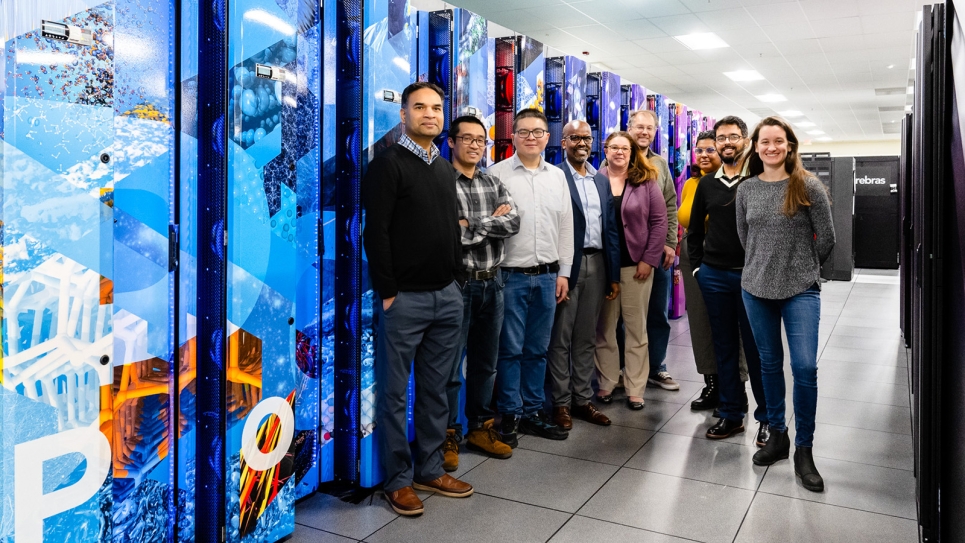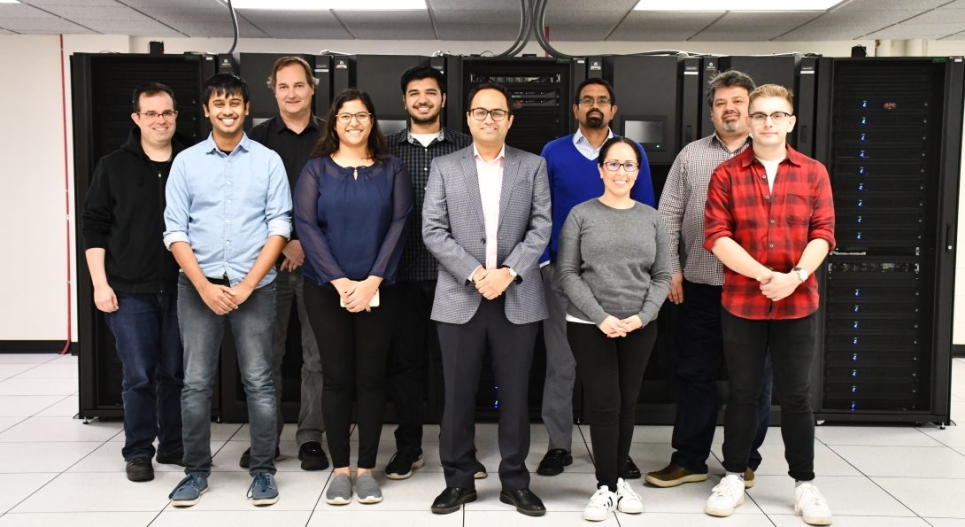
ALCF Lighthouse Initiative to strengthen partnerships with academic institutions
The new initiative will help grow the ALCF's user base and foster connections with the next generation of computing professionals.
The Argonne Leadership Computing Facility (ALCF), a U.S. Department of Energy (DOE) Office of Science user facility at DOE’s Argonne National Laboratory, is launching its Lighthouse Initiative to build enduring partnerships with academic institutions. The initiative, designed to expand the ALCF's user base and foster connections with the next generation of computing professionals, is kicking off an initial pilot phase in partnership with the University of Chicago and the University of Illinois Chicago (UIC).
“As a national user facility dedicated to open science, it is vital that we continue to grow strong partnerships with colleges and universities across the nation,” said ALCF Director Michael Papka. “Partnering with local universities will be useful during this pilot phase as we chart a course to expand the initative to a more distributed model over the next year.”
“By engaging with partners in academia, we not only amplify the impact of our world-class supercomputing and AI resources but also help build a pipeline of diverse talent that will drive progress and innovation in scientific computing,” he added.
The ALCF, the University of Chicago’s Research Computing Center (RCC), and UIC’s Advanced Cyberinfrastructure for Education and Research (ACER) group all provide high performance computing (HPC) resources, support, and training to their respective research communities. Under the Lighthouse Initiative, the organizations will work together to prepare the universities’ researchers for the ALCF’s larger-scale systems, establish collaborative frameworks, and define a path forward for expanding such partnerships with other universities.
“The ALCF computing systems, including Aurora, represent unique, best-in-class resources that will revolutionize scientific research,” said Juan de Pablo, executive vice president for national laboratories, science strategy, innovation, and global initiatives at the University of Chicago; Liew Family Professor of Molecular Engineering at Pritzker Molecular Engineering; and senior scientist at Argonne. “Our partnership with Argonne will prepare University of Chicago researchers to take full advantage of the ALCF’s machines. It will lead to new collaborations at a time when AI is suffusing every aspect of science and technology, and it will accelerate discovery in new and unimaginable ways. We couldn’t be more excited about these efforts.”
The initial partnerships will focus on familiarizing RCC and ACER staff with ALCF’s comprehensive resources, which include the Polaris and Aurora supercomputers, ALCF AI Testbed systems, large-scale data storage and sharing capabilities, and staff with wide-ranging expertise in HPC. With support from the ALCF, RCC and ACER staff members will work with university faculty whose research projects could benefit from ALCF resources.
“The Lighthouse Initiative is a very exciting partnership that provides a path for UIC researchers from ACER to ALCF and access to leading-edge supercomputing resources,” said TJ Augustine, vice chancellor of innovation at UIC. “We can’t wait to see the outcomes of this effort in the coming years.”
The ALCF will provide access to its computing resources to enable RCC and ACER researchers to port applications and evaluate the suitability of using such systems for various projects. Support from the ALCF will include introductory onboarding workshops and a dedicated point of contact to help new users maximize their time on the facility’s systems. In support of its workforce development goals, the ALCF Lighthouse Initiative will also provide internship opportunities to students from partner institutions.
The ALCF aims to extend the pilot phase of the Lighthouse Initiative to additional universities in the coming months, with plans to expand it to more universities next year. As the program grows, there will be a strong focus on increasing access to researchers and students who have less exposure to large HPC facilities like the ALCF.
“By connecting academic minds with resources at the forefront of high performance computing through the Lighthouse Initiative, we're not just bridging gaps but crafting a future where collaborative research and innovation are keystones,” Papka said. “It's our pathway to introducing a wider audience to the vast possibilities within computational science and fostering a symbiotic growth between academia and technology.”
To learn more about the ALCF Lighthouse Initiative, contact us at lighthouse@alcf.anl.gov.

